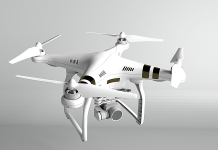By Ali Imran
ISLAMABAD: Pakistan’s first multi-mission satellite, PAKSAT-MM1, has successfully completed testing and is now operational, marking a significant milestone in the country’s space and digital development.
Minister of State for Information Technology and Telecommunication, Shaza Fatima Khawaja, speaking at the PAKSAT-MM1 Satellite Application Conference on Wednesday, reaffirmed the government’s commitment to using space technologies for national growth.
“The success of PAKSAT-MM1 will revolutionise our communication infrastructure, benefiting all sectors of society,” she said.
The satellite will enhance internet connectivity, especially in remote areas, advancing the government’s goal of a digitally connected Pakistan. “Digitalisation is key to socio-economic prosperity,” she emphasised.
Khawaja also noted that Pakistan’s ranking in the UN’s e-governance development index has improved by 14 points, with the country moving to the high tier of digital e-governance in Asia.
Chairman of SUPARCO, Muhammad Yousuf Khan, praised the team behind PAKSAT-MM1, describing the satellite as a critical tool for socio-economic development and for boosting Pakistan’s presence in the global space industry.
“PAKSAT-MM1 will serve unconnected regions with services like DTH, community internet, tele-education, and tele-medicine,” Khan added, inviting local industries to collaborate on future space-related initiatives.
Expected to remain operational for over 15 years, PAKSAT-MM1 offers broadband, VSAT connectivity, and other services, contributing to Pakistan’s ambition of becoming a digitally empowered nation. The satellite operates in C, Ku, Ka, and L bands, showcasing Pakistan’s advancements in space technology.
The event was attended by government officials, industry leaders, and experts, all celebrating the satellite’s role in bridging the digital divide and promoting national development.




